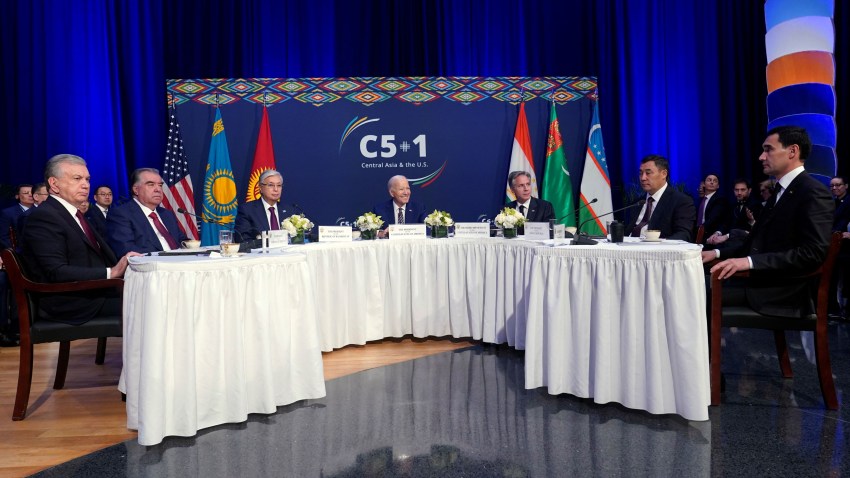Last week, on the sidelines of the United Nations General Assembly, U.S. President Joe Biden met with his counterparts from the five states of Central Asia in the first-ever leaders’ summit of the so-called C5+1 format. The meeting resulted in pledges of enhanced security and economic ties between the U.S. and the region, including cooperation on counterterrorism efforts and a newly launched dialogue on the critical minerals that are key to the technologies underpinning the green energy transition.
The meeting and its outcomes are a step in the right direction when it comes to U.S. policy attention toward an increasingly strategic region, but one that Washington has historically neglected. Until its 2021 withdrawal from Afghanistan, the U.S. largely viewed Central Asia—comprising Kazakhstan, Kyrgyzstan, Tajikistan, Turkmenistan and Uzbekistan—as a logistical pathway to its military operations in that country. This narrow viewpoint, however, fails to recognize the region’s broader geopolitical importance. Offering itself as an additional partner for economic cooperation and development would give the U.S. strategic leverage in a region surrounded by geopolitical rivals Russia, China and Iran.
Long considered a crossroads for trade, Central Asian countries have been the object of a competition for influence between Moscow and Beijing for the past two decades. But in recent years they have also become integral players in several transnational projects and initiatives led by China and Russia, as well as India, Iran and Turkey. The region’s importance stems from its central location in Eurasia and its abundant natural resources, including hydrocarbons and precious minerals.

